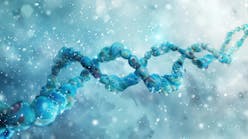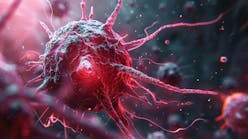Cedars-Sinai Cedars and Tempus to create database and personalized cancer treatment options
Cedars-Sinai Cancer and Tempus, a vendor of precision medicine data and tools, are partnering to design personalized cancer treatment options by creating virtual replicas of patients’ DNA, RNA, protein, and other information.
By creating these "molecular twins," scientists can genetically classify cancer genes and proteins of particular tumors obtained from thousands of Cedars-Sinai cancer patients to build a database that will be mined by investigators, including those outside Cedars-Sinai. The Molecular Twin initiative also will advance cancer care and research in underserved populations and enable investigators to analyze how ethnic and racial disparities affect tumor biology and treatment among diverse populations.
The Molecular Twin database will integrate and store "de-identified" clinical and molecular patient information to ensure that patients and their physicians have access to individualized cancer care strategies, risk assessments, treatments, and novel clinical trials. This patient information — stripped of personal details — also will be available to researchers to offer insight into why some patients are resistant to certain therapies and provide data for potential cancer discoveries, including new treatments.
Cedars-Sinai is using Tempus’ next-generation DNA and RNA sequencing tests to identify each patient’s actionable genetic mutations and associated therapies and potential clinical trials, throughout their cancer journey. Tempus’ AI-enabled diagnostic tests match molecular and clinical data to contextualize patients’ reports, providing physicians with data to help personalize care in real time, including evaluation of DNA with mutations shed by cancers and circulating in a patient’s blood.
“Molecular twins serve as scientific stunt doubles that are always in the lab, ready to identify the best current therapies and, perhaps, reveal important details of how a cancer will affect the patient,” said Dan Theodorescu, MD, PhD, director of Cedars-Sinai Cancer, who conceived of and leads the initiative. “We hope that in the long term, the scientific convergence of multiple biologic, physical and computational datasets on thousands of patients will enable us to develop the treatments of tomorrow as we discover the circuitry used by cancer and other abnormal cells to drive the disease. That is the dream.”
Under the Molecular Twin project, patients will be seen in the clinic, where a physician will take multiple biological samples from tumors, other tissues and blood. Those samples and other clinical data will be analyzed by Cedars-Sinai and Tempus, which will identify markers that predict the way the disease might respond to treatment and provide the patient and physician with a comprehensive molecular report.
Based on the report, physicians will receive customized treatment information, which will include standard therapy options. If no standard therapy is indicated, physicians will consider the information in the Molecular Twin profile to select the best clinical trial for a patient. The patient’s molecular twin will be stored in the database, along with thousands of others, for current and future study by investigators. The patients’ molecular twins also will be progressively annotated and enriched with each medical visit, providing useful data on their medical journeys.





